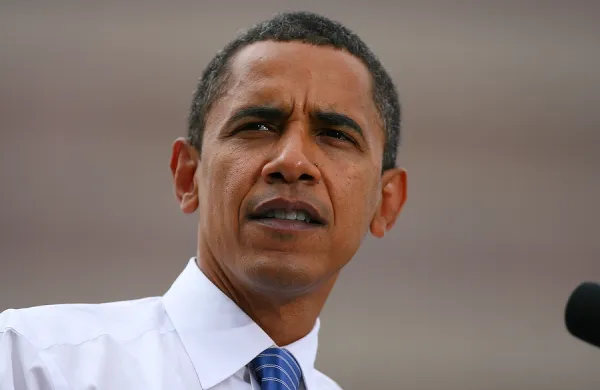Investment managers come in many political stripes. But regardless of where an investor falls on the political spectrum, those who specialize in health care have at least one reason to embrace President Barack Obama’s Patient Protection and Affordable Care Act (ACA), also known as Obamacare. Thanks in part to expansion of health care coverage under the law, the S&P 500 Health Care index has risen some 120 percent between December 2011 and December 2014, versus a 65 percent rise for the Standard & Poor’s 500 index overall.
The health care sector seems likely to slow in 2015, however. Industry analysts and portfolio managers see uncertainties ahead for managed care companies, health insurers and publicly listed hospitals. What had been a perfect moneymaking storm of expanded insurance coverage and an aging population is now priced into the sector. And whereas Obamacare isn’t likely to disappear, in 2015 there will be a Republican majority in the House and Senate and Republican governors in 31 states, thereby opening up the possibility for legislative changes.
“I wouldn’t expect the meteoric rise to continue,” says Michael Gregory, who is the head of health care investing at Highland Capital Management, a Dallas-based hedge fund firm that manages about $19 billion in assets, with some $2.5 billion in health care–related equities, debt and credit, including a long-short health care fund. He sees some winners emerging in the next few years but also some stunting of growth as a result of the November elections — and, therefore, some opportunities to go short.
Steven Halper, a senior vice president of equity research who covers the health care sector for FBR Capital Markets, a subsidiary of FBR & Co. in New York, foresees a somewhat rocky 2015 for the sector but stronger growth in 2016. He anticipates a slowdown next year because of a cut in payment rates to Medicare Advantage Plans, which have presented a delicate political balance. The ACA has always called for reductions to the program on the ground that, in subsidizing private insurers to cover Medicare beneficiaries, it costs taxpayers more than that health care should. But the insurance industry lobby pushed for a higher subsidy in 2015. Ultimately, the Obama administration agreed to a 0.4 percent increase. The insurance industry says, however, that it will in reality see about 3 to 6 percent less money because of other factors such as the cost of delivering benefits. Halper expects rates to improve in 2016, however, which will be reflected in stronger growth among large insurance companies.“I’m not willing to go out more than two years,” he adds. “You’d have to tell me who’s going to be sitting in the White House then.”
In a research paper Highland’s Gregory published just after the elections, he wrote that the Republican sweep in a number of gubernatorial elections will actually have a greater impact than the GOP-led Congress. That’s because governors decide whether to expand Medicaid coverage within their states. Medicaid covers roughly two thirds of the 35 million people in the U.S. who receive health insurance under the ACA.
Without Medicaid expansion, hospitals and other health care providers within the states are less certain of collecting on their receivables. Only 27 states and the District of Columbia have elected to expand Medicaid coverage for both adults and children. “It’s become a matter of ‘never let a good economic plan get in the way of politics,’” says Gregory. Another line of business that might suffer from limited Medicaid expansion, says Gregory, is a niche area that might not be on the radar of most investors: emergency transportation companies such as Air Methods Corp., which, based in Englewood, Colorado, is the world’s largest air medical provider. In many cases, Medicaid will kick in as the insurer when a person is injured and has to be airlifted to the nearest hospital.
If the 23 states that have voted against Medicaid expansion should happen to have a change of heart, however, Gregory foresees a nice tailwind for the sector. Not that any investors should hold their breath until that happens. If anything, the most determined Republican governors are working on new ways to defeat Obamacare, even if it means punishing the health care industry. Missouri, for example, is considering a bill that would impose stiff sanctions on insurers that sell ACA plans in the state, although the measure, if passed, would go into effect only if the U.S. Supreme Court, which is scheduled to hear new arguments in March about federal subsidies in states that didn’t set up their own insurance marketplaces, rules that states are not allowed to accept the subsidies. The Missouri proposal would force insurance carriers that receive federally subsidized premium payments to return the remuneration or risk suspension of their license to operate in Missouri.
One line of business that is likely to be a winner under a Republican-led Congress, however, is companies that make medical devices. Republicans, says Gregory, are likely to push for repeal of a 2.3 percent tax on revenues from medical devices that has been in effect as part of the ACA since January 1, 2013. “There seems to be a moderate amount of bipartisan support for repealing the tax,” says Gregory. Repeal, he says, would pave the way for stronger profits and more investment in research and development at medical device companies such as Abbott Laboratories in Chicago, Medtronic in Minneapolis, NuVasive in San Diego and Stryker Corp. in Kalamazoo, Michigan. “We’ve adjusted our portfolios to overweight medical device equities,” says Gregory.
Follow Jan Alexander on Twitter at @jananyc.






